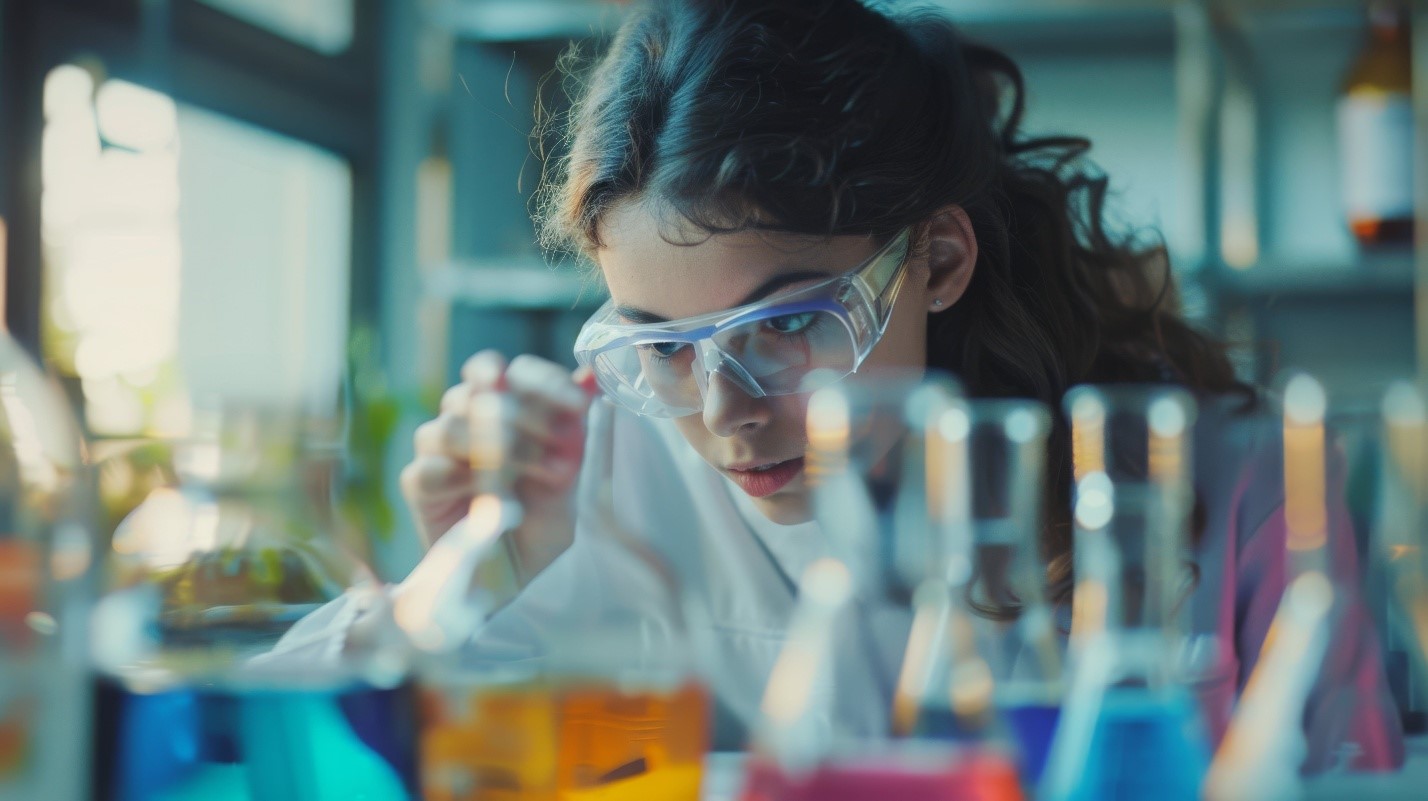In today’s rapidly evolving scientific landscape, the ability to think critically and independently is more important than ever. Biochemistry, a field that bridges biology and chemistry to explore the molecular mechanisms of life, is uniquely suited to foster curiosity-driven learning. However, traditional teaching approaches often emphasize rote memorization and adherence to rigid protocols, leaving little room for creativity or self-directed exploration. To prepare students for future scientific challenges, Alice Chang, Ph.D., emphasizes that educators must shift their focus toward inquiry-based learning (IBL), a method that encourages students to ask questions, explore answers, and develop a deeper understanding of biochemical concepts.
What Is Inquiry-Based Learning?
Inquiry-based learning is a pedagogical approach that places students at the center of the learning process. Instead of merely absorbing facts, students are encouraged to engage actively by formulating hypotheses, designing experiments, and analyzing data. This approach mirrors the way professional scientists work, fostering critical thinking, problem-solving, and a genuine interest in discovery.
In biochemistry, IBL can take many forms, from open-ended experiments to case studies that require students to solve real-world biochemical problems. For example, rather than following a pre-written lab manual to determine the activity of an enzyme, students might be asked to design their own experiment to investigate how environmental factors influence enzymatic function. Such tasks encourage students to think like biochemists, equipping them with skills that are transferable beyond the classroom.
The Benefits of Inquiry-Based Learning in Biochemistry
- Deepens Conceptual Understanding
Biochemistry is inherently complex, involving intricate pathways, molecular structures, and dynamic interactions. Inquiry-based learning helps students move beyond surface-level understanding by encouraging them to ask “why” and “how.” For example, exploring the mechanisms of allosteric regulation in enzymes through guided inquiry allows students to grasp abstract concepts more effectively than memorizing pathways and structures alone. - Enhances Critical Thinking and Problem-Solving
In traditional biochemistry education, students often follow step-by-step instructions without understanding the rationale behind their actions. IBL flips this model, requiring students to design experiments, troubleshoot issues, and interpret results. These skills are invaluable not only in research but also in careers ranging from medicine to biotechnology. - Promotes Scientific Curiosity
Inquiry-based learning taps into students’ natural curiosity. By presenting open-ended questions—such as “How might a mutation in a specific gene affect metabolic pathways?”—educators can inspire students to seek answers that are not immediately obvious, fostering a sense of wonder and exploration. - Prepares Students for Research and Industry
Biochemistry graduates often pursue careers in research, where the ability to design and conduct experiments is essential. By incorporating IBL into the curriculum, educators can better prepare students for the demands of research-intensive roles. Students learn to approach problems systematically, analyze data critically, and present their findings coherently.
Strategies for Implementing Inquiry-Based Learning in Biochemistry
While the benefits of IBL are clear, implementing it effectively requires thoughtful planning. Below are several strategies for fostering inquiry-based learning in biochemistry education:
- Start with Guiding Questions
Encourage students to frame their learning around questions rather than answers. For instance, instead of teaching students about the citric acid cycle as a series of steps, pose a question like, “How does the citric acid cycle adapt to varying energy demands in different cell types?” - Incorporate Case Studies
Case studies grounded in real-world biochemistry challenges can help students apply theoretical knowledge to practical problems. For example, a case study on a patient with a metabolic disorder could lead students to explore how mutations in key enzymes disrupt cellular pathways. - Redesign Lab Experiments
Replace traditional “cookbook” lab experiments with inquiry-driven projects. Instead of providing students with a detailed protocol, give them the tools and background information needed to design their own experiments. For instance, students studying protein folding might be tasked with investigating how different environmental factors, such as pH or temperature, influence protein stability. - Use Technology and Online Resources
Tools such as molecular modeling software, virtual labs, and databases like PubMed can enhance inquiry-based learning by allowing students to explore biochemical processes in greater detail. For example, students can use molecular visualization tools to analyze how specific mutations affect protein structure and function. - Encourage Collaboration and Peer Learning
Inquiry-based learning thrives in collaborative environments where students can share ideas, debate hypotheses, and learn from one another. Group projects, peer reviews, and collaborative problem-solving activities can foster a sense of community and collective discovery.
Challenges and Solutions
Implementing IBL in biochemistry education is not without its challenges. One common obstacle is the additional time and effort required for both students and educators. Designing open-ended experiments and providing individualized feedback can be demanding. However, these challenges can be mitigated through careful planning and the use of technology.
Another challenge is resistance from students who are accustomed to traditional learning methods. To address this, educators can gradually introduce IBL by starting with smaller, guided inquiry activities before moving on to more open-ended projects.
The Future of Biochemistry Education
As the field of biochemistry continues to expand, the need for innovative, adaptable scientists grows. Inquiry-based learning provides a powerful framework for cultivating the skills and mindsets students need to thrive in research, medicine, and industry. By encouraging curiosity, fostering critical thinking, and promoting hands-on discovery, educators can inspire the next generation of biochemists to tackle the complex scientific challenges of tomorrow.
Biochemistry is a discipline defined by exploration and discovery, yet traditional educational methods often fail to reflect this spirit. Inquiry-based learning offers an alternative, one that aligns closely with the scientific process and empowers students to take ownership of their education. By fostering curiosity and critical thinking, IBL not only deepens students’ understanding of biochemical concepts but also prepares them for the demands of a rapidly changing world. It’s time for educators to embrace this transformative approach, inspiring students to ask questions, seek answers, and ultimately, make meaningful contributions to the scientific community.
